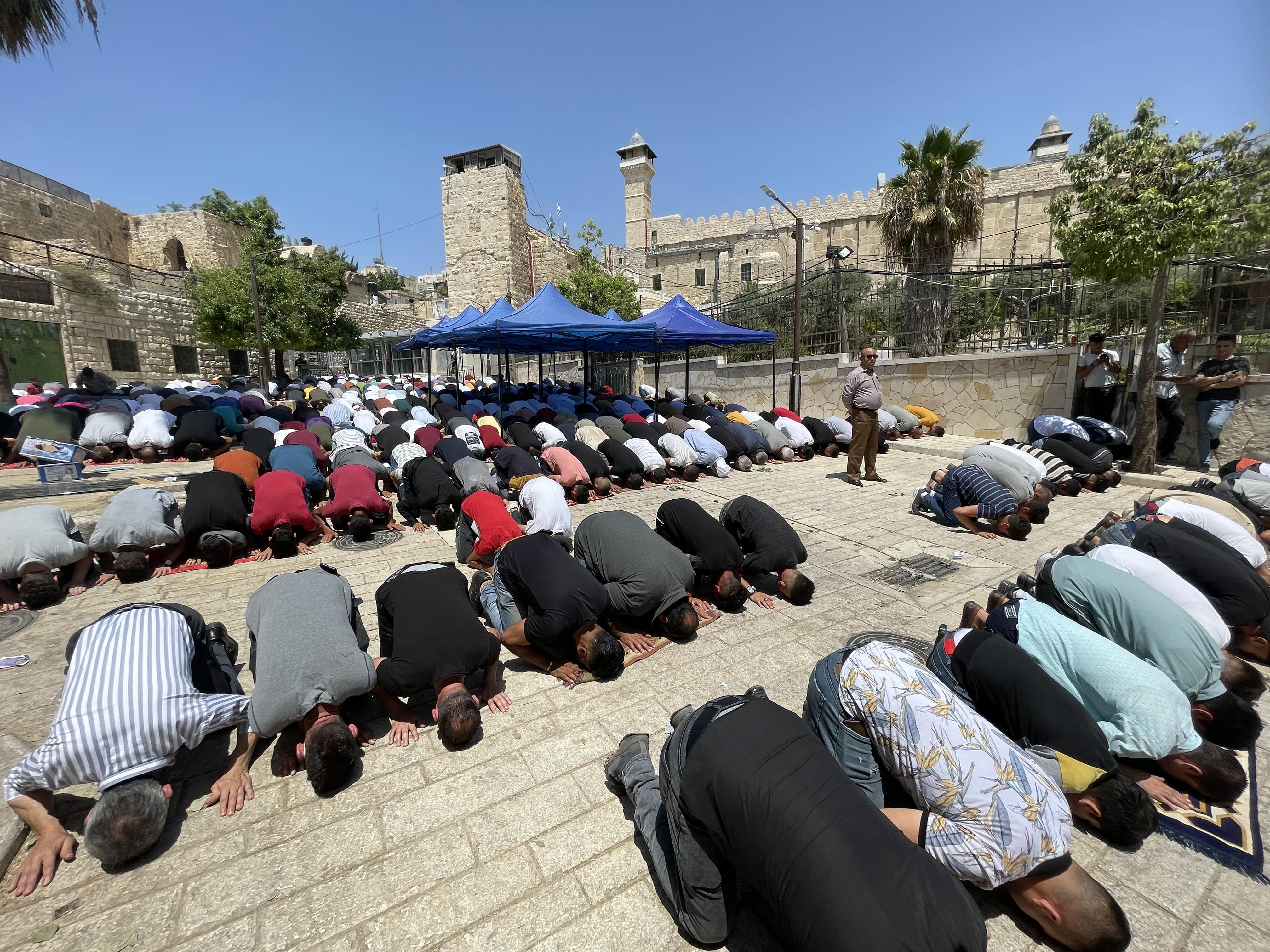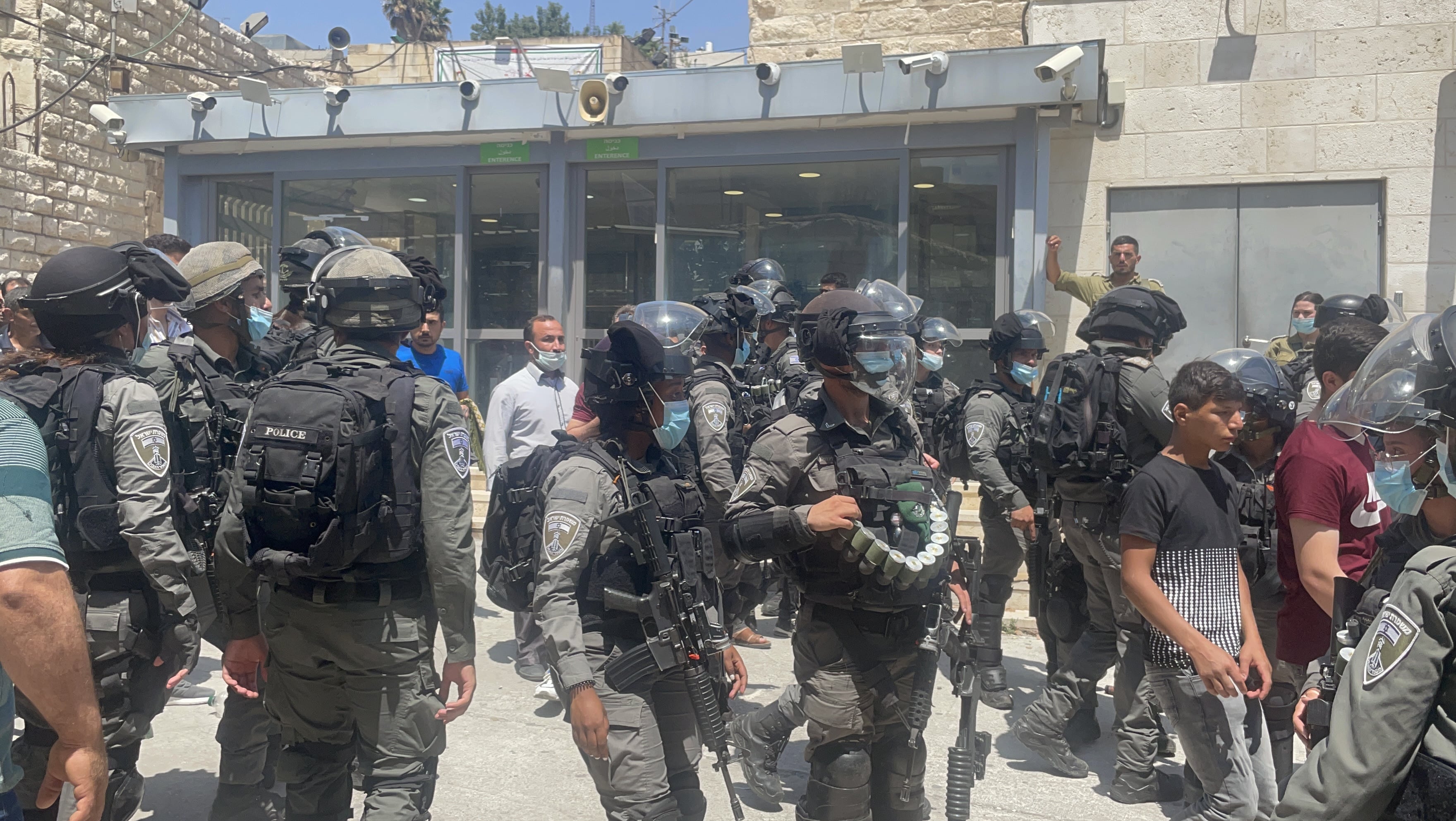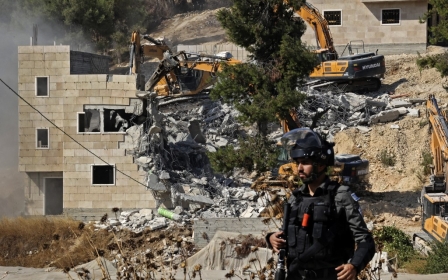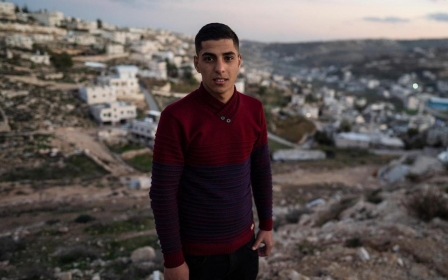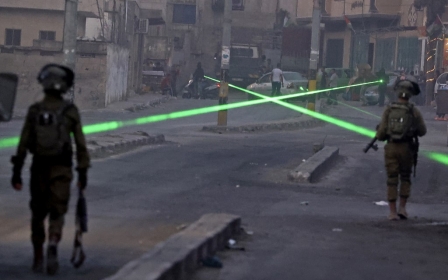Hebron: Palestinians fight to save the Ibrahimi Mosque
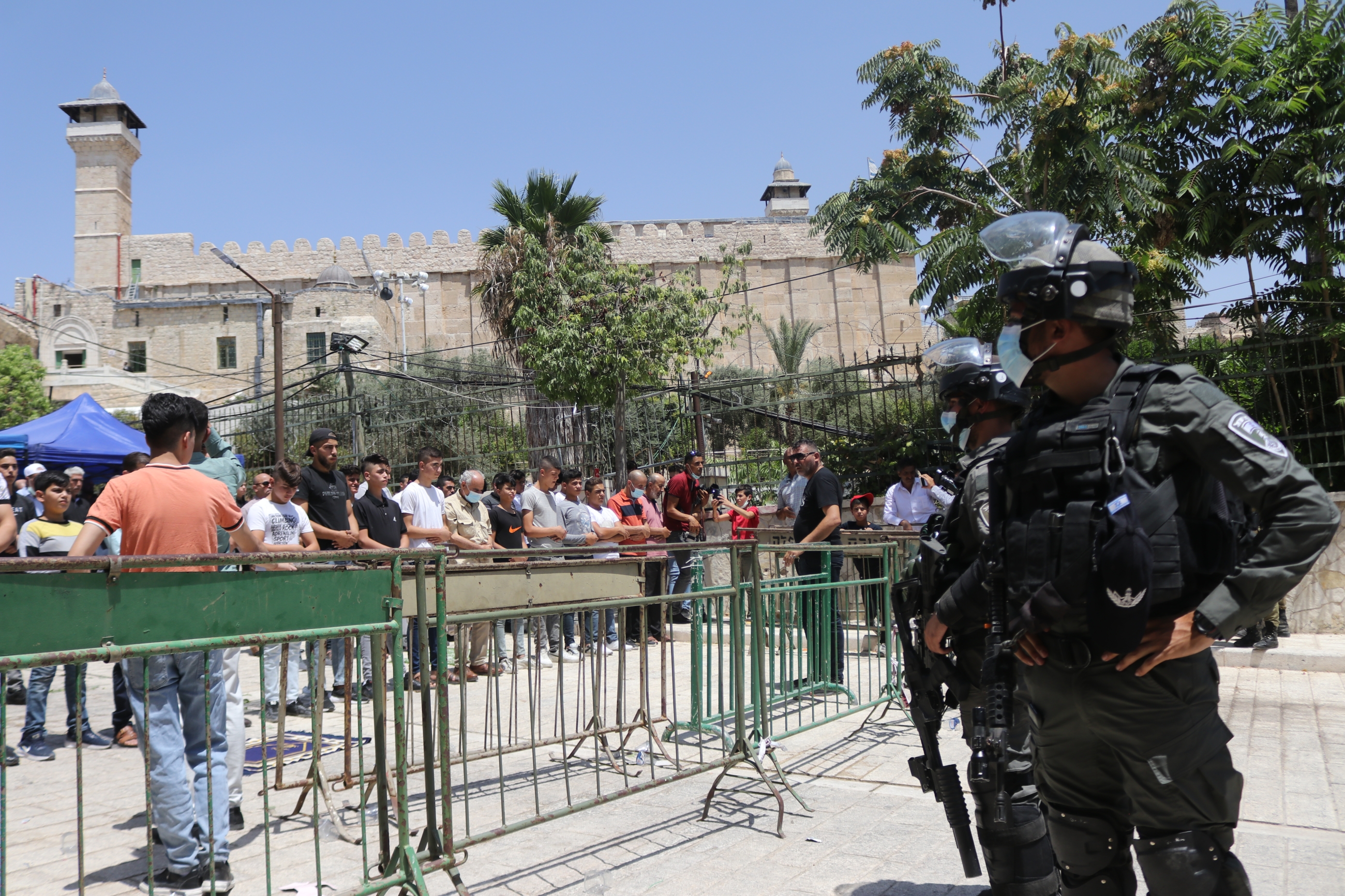
On 10 August, residents of Hebron city in the occupied West Bank awoke to the sound of heavy machinery working in the nearby Ibrahimi Mosque.
A large number of Israeli occupation troops guarded the outer courtyards of the mosque as their machinery dug up a winding road as part of a plan to install an electric elevator at the site, Israeli authorities announced on 9 August.
The route that Israeli forces are paving is meant to link to the mosque’s parking area, cutting off some 330 square metres of the courtyard.
The land confiscation and annexation order for the mosque, classified as Waqf land, was published by the Israeli army on 12 May 2020. Palestinians attempted to stop the decision, but after a year’s delay work began at the site.
'Over the course of many years, Israel deliberately erased the Palestinian Islamic presence from the Ibrahimi Mosque and replaced it with a colonial Zionist one'
- Imad Hamdan, director of the Hebron Reconstruction Committee
Israeli authorities claimed that the elevator project’s purpose is to facilitate special needs access from the side that the occupation army controls.
New MEE newsletter: Jerusalem Dispatch
Sign up to get the latest insights and analysis on Israel-Palestine, alongside Turkey Unpacked and other MEE newsletters
However, Imad Hamdan, director of the Hebron Reconstruction Committee, told Middle East Eye (MEE) that the real goal of the project is not a humanitarian one, but an attempt to seize a large area of land and further Judaise the mosque.
“They claim to have a humane sense; why do we see Muslim worshippers suffering to reach the mosque, moving through barriers that hinder their movement, are stripped of their clothes and searched militarily?” said Hamdan.
“Even people with disabilities enter the mosque carried on the shoulders of others.”
Hamdan said the project will change the general view of the historical and cultural building, which spans 190 square metres. In addition to a wheelchair-accessible spiral path, Israeli occupation authorities aim to build an aerial bridge to connect to the upper staircase of the mosque.
“Israel's goal, since its occupation of Hebron, and specifically the annexation of the Ibrahimi Mosque, is to give the place a Jewish character. Over the course of many years, Israel deliberately erased the Palestinian Islamic presence from the Ibrahimi Mosque and replaced it with a colonial Zionist one,” he continued.
The changes to the urban fabric that Israel is making to the mosque - such as the elevator project - are a continuation of that policy, he said.
Hebron under occupation
Hebron came under Israeli occupation along with the rest of the West Bank in 1967 and became the site of the first illegal settlement in 1968. Aside from Jerusalem, Hebron remains the only city in the occupied West Bank with settlers in the heart of town.
This has led to a heavy Israeli military presence in the city and daily friction between provocative, armed settlers and the army on one hand, and Palestinian residents on the other.
In 1994, an armed Israeli-American settler, Baruch Goldstein, entered the Ibrahimi Mosque at Fajr prayer on the last Friday of Ramadan, and opened fire, killing 29 Palestinians and wounding 150 others. Following the massacre, Israel proceeded to impose further restrictions on Palestinians at the mosque and in the city as a whole.
It forcibly divided the mosque and created a synagogue with a separate entrance for Jews, shut down vital parts of the city to Palestinian access, and heavily increased military checkpoints for Palestinians.
Today, there are over 100 physical obstacles in Hebron and over 20 permanently manned checkpoints. The Ibrahimi Mosque itself is surrounded by Israeli occupation checkpoints and soldiers who control access to the mosque.
The Civil Administration, which falls under the Israeli occupation army, issued two military orders to expropriate parts of the Ibrahimi courtyard and mosque itself.
In response, Palestinian authorities took preliminary legal measures consisting of an appeal to the legal advisor on behalf of the Hebron Municipality and the Committee for Reconstruction and Islamic Endowments, but the appeals were rejected.
The Reconstruction Committee’s lawyer, Tawfiq Jahshan, told MEE that the "subcommittee for settlement", which operates under the Civil Administration, submitted the elevator plan to obtain a building permit.
After long deliberations and Palestinian objections, the subcommittee withdrew the powers of the Palestinian Hebron municipality and gave powers to the subcommittee for construction.
Jahshan pointed out that while the Israeli court is scheduled to hold a session in November for the latest Palestinian appeal against the project, work has already begun. He also said that the judge who heard the case is Noam Solberg, a settler who lives in the occupied West Bank.
“We took steps on the international level; we sent letters to Unesco, but received no answer,” said Jahshan. “In July 2017, it [Unesco] announced the inclusion of the Ibrahimi Mosque as a Palestinian heritage site in danger.”
'Hegemony of a new kind'
Calls have been made by Hebron’s religious institutions, activists, and youth groups, such as the Guardians of the Mosque, calling on residents to publicly mobilise, stay in the mosque to perform their prayers, and denounce the occupation’s advances on the project.
Sit-ins and protests were also held at the site.
Deputy head of the Ibrahimi Mosque and member of the municipal council in Hebron, Ghassan al-Rajabi, said that the occupation aims to tighten its control over the mosque, which is an Islamic cultural heritage site.
'The construction of the elevator means hegemony of a new kind, and more restrictions on Palestinians,'
- Bader al-Tamimi, Hebron resident
The elevator project, said al-Rajabi, will add to the system of control over Palestinians, represented by gates and checkpoints at the mosque entrance manned by occupation soldiers.
Bader al-Tamimi, a local who owns a shop near the mosque, believes the project is another extension of settler colonialism.
“The construction of the elevator means hegemony of a new kind, and more restrictions on Palestinians,” al-Tamimi told MEE. He said he feels hopeless without any local or international mobilisation on the ground to create justice, or to really show the violations carried out by the army against them.
Middle East Eye delivers independent and unrivalled coverage and analysis of the Middle East, North Africa and beyond. To learn more about republishing this content and the associated fees, please fill out this form. More about MEE can be found here.


